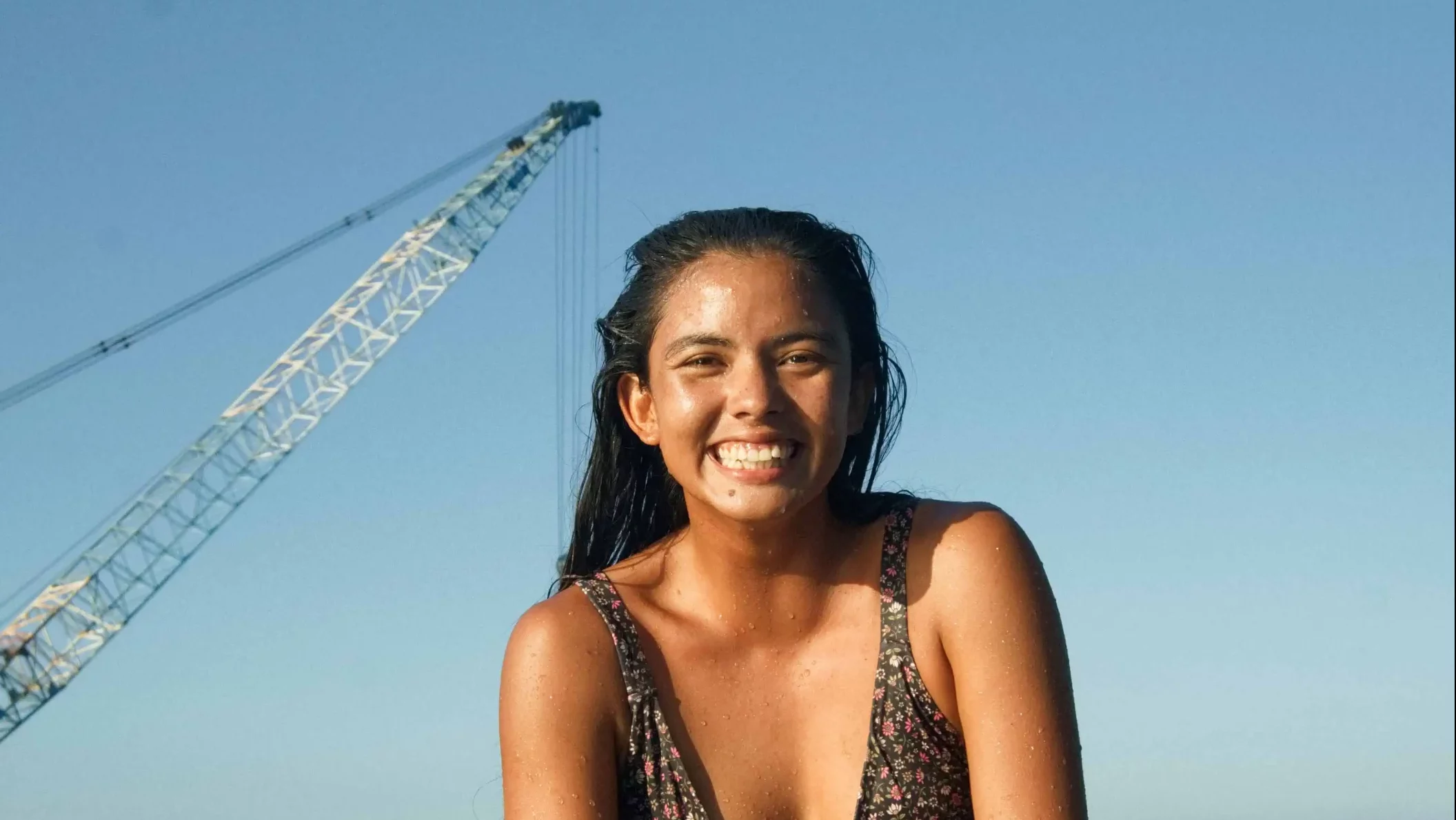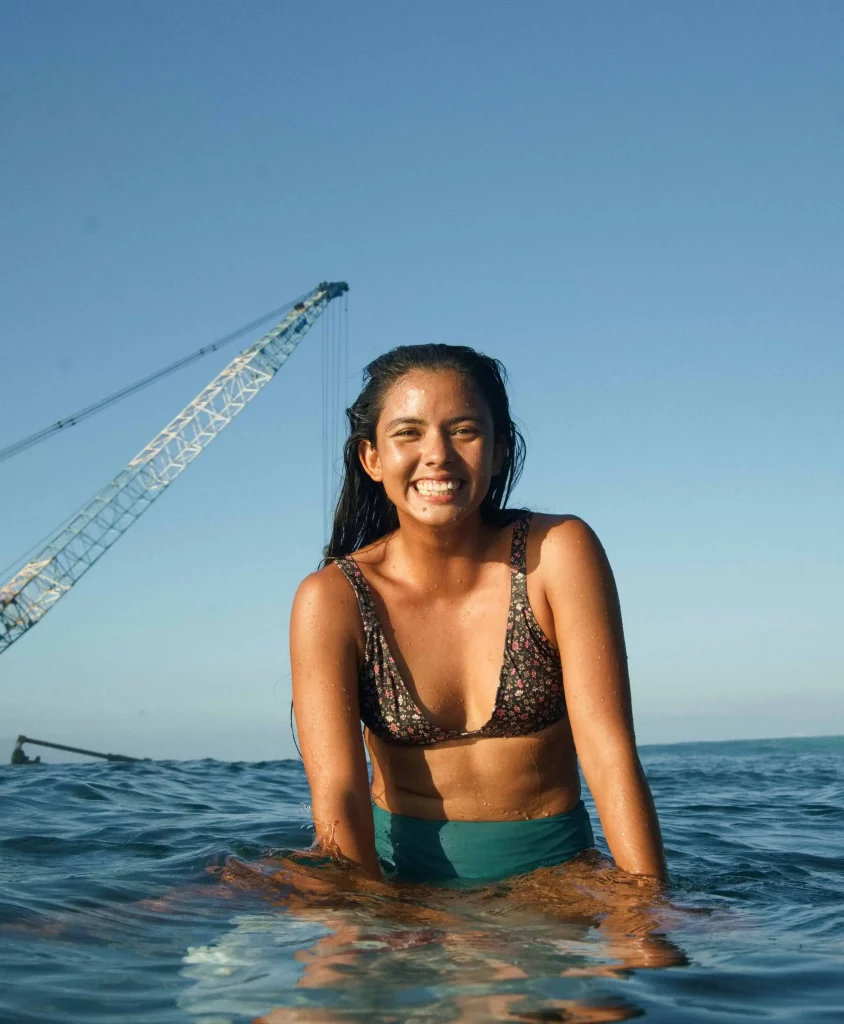
Kayli Wouters’ journey into marine biology and environmental science began not in a classroom, but on the waves of Lembongan Island. At 15, while on a holiday dive trip with a friend, she attended a presentation by Shark Guardian.
“We were all into scuba diving, and so on that trip, we went diving, saw the mantas,” Kayli recalls, “and then one night after dinner we went to a talk about sharks. Shark Guardian, that’s the name of the organization, was on the island and giving a small presentation at a restaurant. So we went to watch and basically, it was so informative and moving that after that, I was so fired up about saving sharks. I have always been caring for animals and the natural environment.”
This moment catalyzed a dedication to marine conservation, a passion further nurtured by her father’s companionship on numerous dive trips and her own pursuit of surfing.
“My dad would also take me on dive trips growing up, and later on I also learned how to surf, which only continued to increase my love and care for the ocean “
Kayli Wouters
Earning a Bachelor of Science in Environmental Management and Technology from The Open University
Choosing to study environmental science was a natural progression for Kayli. The Open University (OU) became her institution of choice due to its flexibility and focus on online education, which suited her perfectly. “The passion stuck I guess. I felt like studying something after my gap year after high school, but had no desire to be ‘stuck’ somewhere for a few years right after traveling for a year. So online uni was an idea, and the fact that I was able to take my time with it and therefore still be able to travel on top of making a living was very appealing,” she says.
Despite the inherent challenges of self-discipline and balancing studies with travel, Kayli’s journey through academia was rich with personal growth and learning, albeit unconventional. “It actually took me 5 years, to do a 3-year course. I did the first and third years split into 2, and only the second year did I study full time, but that was during 2020 when I wasn’t working that much or traveling because of COVID,” she details.
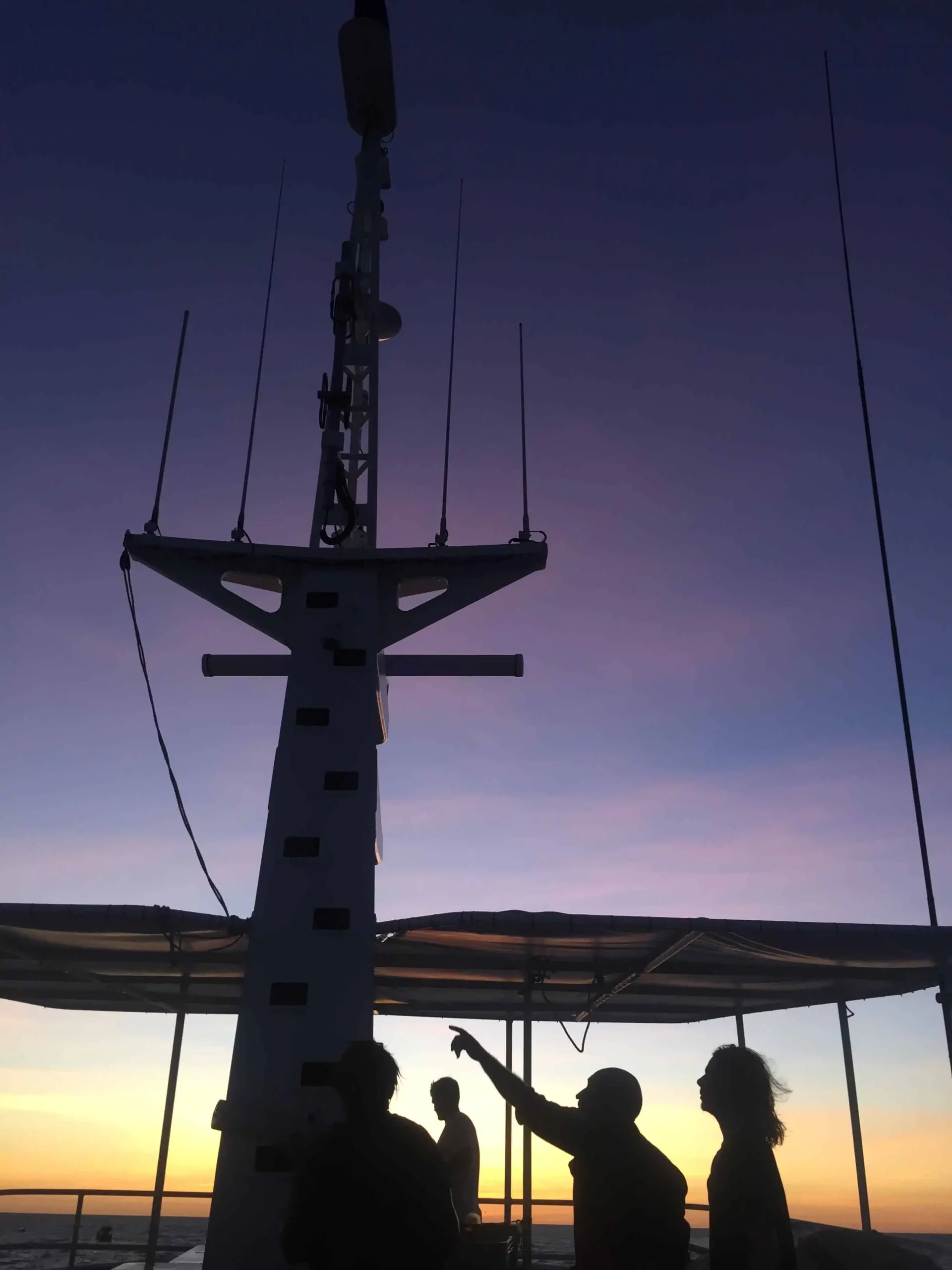
“ It was definitely challenging, but I prefer the flexibility over having a set schedule of where and when to be somewhere to learn something. It was more challenging of course when I was working more, or on the move, or in a place with constant good surf, because that was always a priority. When the waves are good, it’s hard for me to do anything else. Some more self-discipline in that matter would have been helpful.
I did actually work and travel LOTS. In the time I was studying I was living between Bali, Lembongan and Lombok, then back and forth to Australia too, on top of small strike missions to find waves during bigger swells around Indonesia. So even though it took ages to finish, it was well worth the life experience.”
Working on a pearl farm in Australia
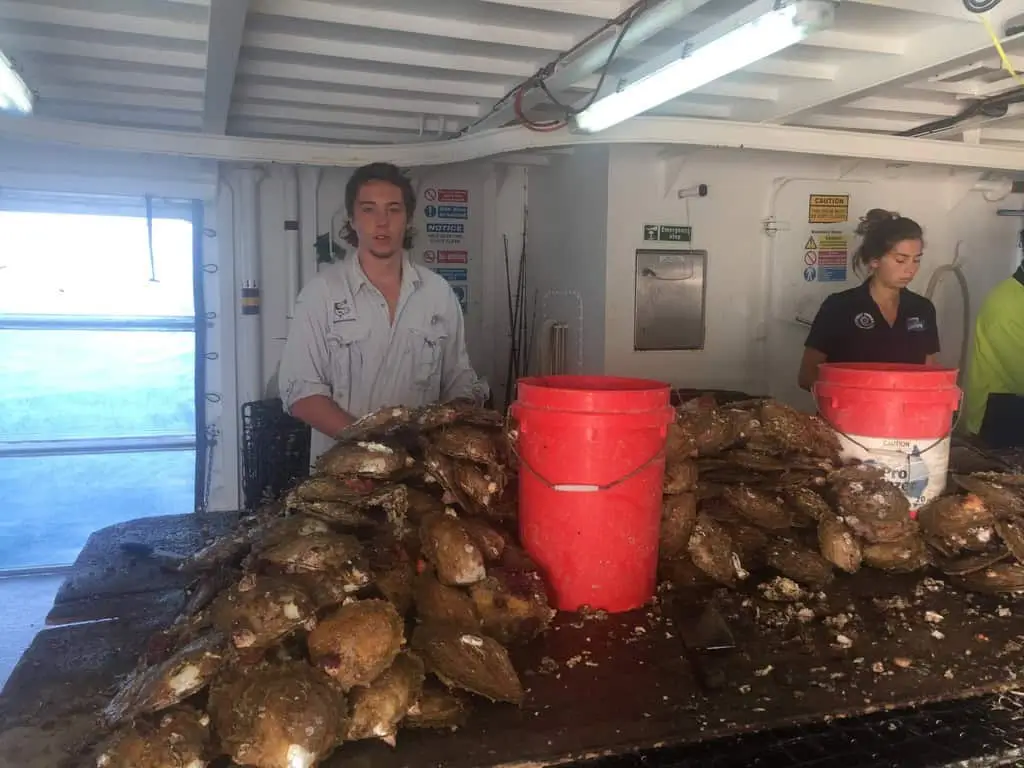
Required to complete “farmwork” for a visa extension, she opted for pearl farming, an idea introduced to her by a friend’s father. “One week later I was chipping shell on a ship, far out at sea. It was probably the most random thing I had ever done, but also one of the best experiences of my life,” she reminisces.
“There were on average about 25 people on every trip. Trips were about 12 days long, and 6 days off. So 12 days out at sea with everyone, and then 6 days back at the hostel in Broome with almost everyone.
We were a combination of deckhands, skippers, a captain, managers, technicians, divers, and kitchen crew. It was a mix of maybe 50% locals and 50% international backpackers, with about 3-4 girls and the rest were men.”
The work was hard, the days long, and the living conditions not exactly comfortable, yet the unique environment provided unforgettable experiences. “Highlights were just being out on the water, and seeing tons of wildlife like sharks and whales. In humpback season we saw them breaching all the time, and at night we’d have tons of sharks circling the boat,” Kayli shares enthusiastically.
There were challenges, particularly the issue of plastic waste management, which she found difficult: “trying to get everyone to properly dispose of plastic waste before cleaning the workspace at the end of the day was hard. When the shells are slotted into the panel pockets, we would use zip ties to keep them shut and safe from falling out. And so when panels were brought up and we had to cut the zip ties open to get the shell out for cleaning. Oftentimes the zip ties would end up on the floor of our workspace, with a layer of barnacles and sponges which then made it hard to see and pick them out.
At the end of each work day, we would hose down the workspace and even though I would scan the entire ground first for plastic before allowing anyone to hose down the area, I’m sure there were days I didn’t get everything. Pearl farming is a sustainable form of aquaculture but it was definitely not well managed in terms of plastic waste.
Sometimes we would take the dinghies to little beaches that were so isolated, to have barbecues and bonfires after work, and on these beaches that are kilometers and kilometers away from civilization, I found zip ties amongst other plastic pearling waste. And so to me, that was really upsetting. And so trying to get other people to care about it during work was also a challenge.” she recalls.
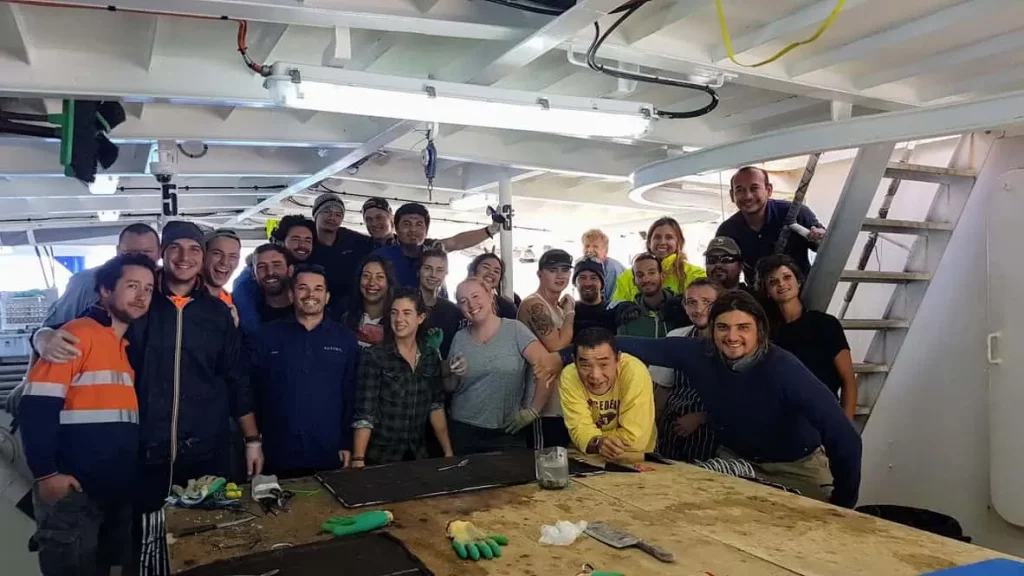
Inspiration as a driving force for good
Inspiration plays a crucial role in Kayli’s life, and she draws it generously from individuals like her friend Steve Woods, a professional underwater photographer. “He took me under his wing and taught me the dive spots, I helped him with his work, and I remember he was the only adult who spoke to me as if I was a friend and not a child. At the time, I was so inspired and admired divers and the recreational diving industry that this acceptance meant the world to me,” Kayli fondly remembers.
“Since then, he’s gone on to shoot the most amazing wildlife, from polar bears to blue whales, in the most intense conditions. He’s shot for major environmental campaigns and well-established publications like Nat Geo. Now, he runs his own grizzly bear photography retreat/course.
He inspires me because he has transformed his passion into his work, and he is just a huge ray of sunshine in addition to being an advocate for wildlife and nature conservation. I find a lot of people who advocate for these causes are generally heavy with the burden of caring, but he somehow manages to make even that a light space.”
She elaborates “For me, work isn’t just about the career, tons of people can work hard for a good career. The hard work really comes in when you manage to balance your career, family, friends, and time with yourself.
From what I know, he is somehow managing this very well and that gives me hope that I can maybe do the same too.
A lot of different organizations inspire me, such as ReShark, Pandu Laut, and Project Hiu.
Advice to aspiring environmental scientists
“I’d say do it. It’s a very interesting subject and since climate change seems to be something that isn’t going away just yet, it’s definitely valuable knowledge to have that you can apply in day-to-day life.
I would also recommend doing it at a university, only because I think I would have retained more specific information had I actually had classmates that I could converse about it to in person.
And finally, not to limit yourself to the traditional fields and roles of work. The definition of a career is evolving and constantly innovating, so don’t be scared to try new things, experience everything, and be creative with your skills in order to find that job or life that makes you happy.”
Through her experiences, Kayli not only continues to foster her connection with the ocean but also inspires others to consider their impact on the natural world, advocating for a balance between scientific pursuit and the irreplaceable thrills of life’s adventures.
As well as writing for The Reef And Shark Collective, Kayli Wouters works as a surf guide in the Mentawai islands (Indonesia), follow her adventures on the waves here.
Read Kayli’s article on Pearl Farming.
